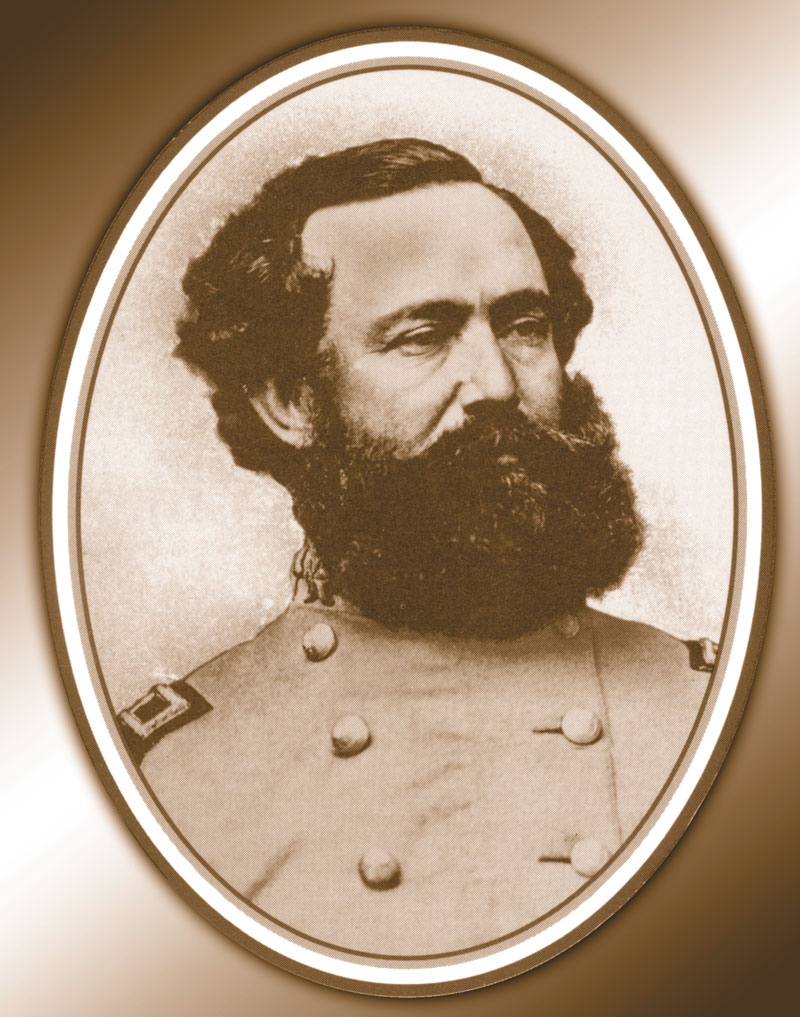The Life and Times of Gen. Wade Hampton, His Upstate Roots, Military Record and Political Impact on South Carolina History

When we think of historic figures who have had an impact on South Carolina history, we may thing of John C. Calhoun, “Pitchfork” Ben Tillman, J. Strom Thurmond, House Speaker David Wilkins or Rev. Jesse Jackson.
The single individual who has had the greatest impact on South Carolina History, in my view, was a man with Upstate roots, whose grandparents, uncles and aunts were massacred by Indians while living in a log cabin on the Tyger River near what is now Greer, South Carolina.
He is honored with a large statue on the grounds of the state capitol. A highway and school are named for him in Greenville County, yet the truth of his historic impact on the state has been mostly hidden from students in recent years.
Wade Hampton III was a great military leader and a controversial political figure. One author speaks of his life as “one of dramatic contradictions,” yet his most famous quote at the beginning of the war was: “I will sacrifice everything but principle and honor.”
His most dramatic historical achievement was leading the “Revolution of 1876,” described by some as the “Second American Revolution,” to rid South Carolina of the most corrupt and oppressive government in the history of the United States.
Alfred B. Williams, a newspaper reporter for the Charleston Journal of Commerce accompanied Gen. Hampton on his famous campaign for Governor through South Carolina. In later years, Williams edited the Greenville News, New York Times, Richmond News Leader and Roanoke Morning Times.
Williams was an eyewitness to the dramatic happenings of 1876-77. Years later he wrote: “The powers that ruled South Carolina from 1868 until they were overthrown caused more destruction than the four years of the Civil War.
“In the weeks and days of the year 1876... the people of all South Carolina were in daily excitement and fear, beginning to see the faint dawn of hope where no hope had been. They were intent on staking everything on one desperate struggle for deliverance from conditions intolerable and dangerous and horrible beyond the conception of people of the present.
“Those days and weeks were the most eventful and important of the history of this state. Defeat in the war with Great Britain that began in 1776 could not have brought disaster so frightful as was threatened by failure in the revolution of 1876. The British never have destroyed a civilization nor ruined a country they conquered,” Williams concluded.
The evening appearance of Gen. Hampton and his running mate Col. W. D. Simpson of Laurens in Greenville just three weeks into the campaign, produced a record greeting party turnout.
The next day, a procession of 1,500 men on horseback led Gen. Hampton to the Furman University Campus, (where Greenville County Square is now located) where he addressed a crowd estimated to number 5,000 to 6,000.
After winning the election, armed troops refused to allow him in the Governor’s Office, yet he ultimately prevailed.
Having “redeemed” South Carolina from the evils of Reconstruction, he extended more political benefits to African Americans than any other Democratic governor in the postwar South.
Citizens of South Carolina should know more about Wade Hampton III and the history of the Palmetto State. The upcoming series will hopefully be helpful in that endeavor.